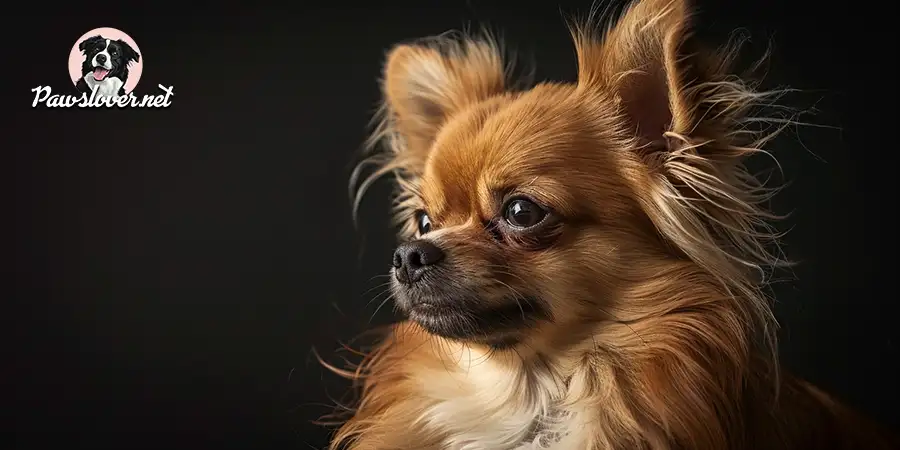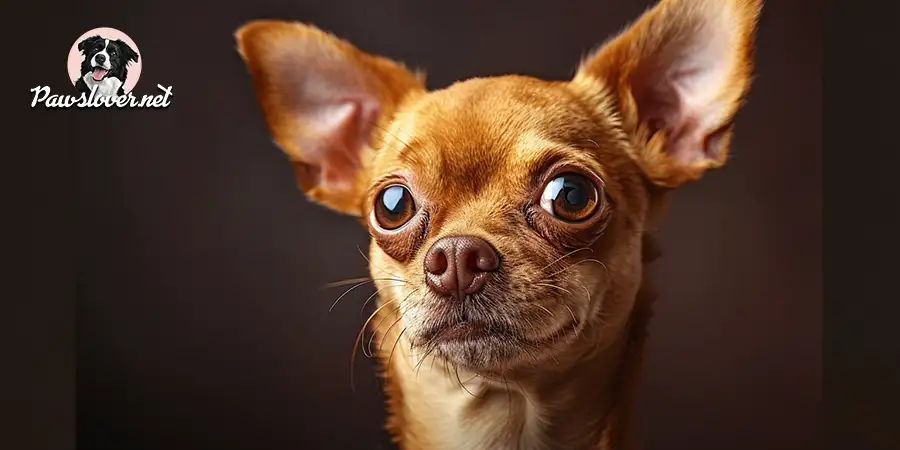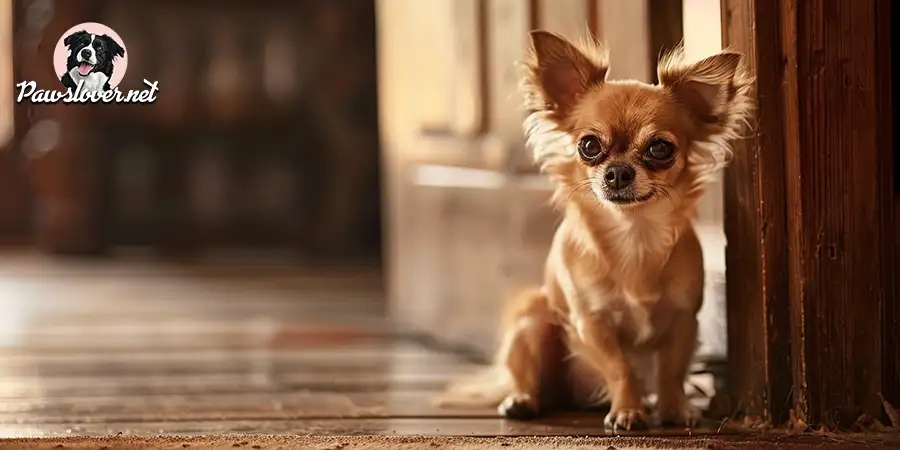Introducing the Chihuahua: A Tiny Dog with a Big Personality
Chihuahuas are small in size but big in character, known for their feisty temperament and loyal nature. These pint-sized companions make wonderful pets for those looking for a dog with plenty of spirit and charm. Despite their diminutive stature, they are brimming with personality and heart.
Chihuahua Breed Overview
| Characteristic | Detail |
|---|---|
| Official name | Chihuahua |
| Other name(s) | Chi |
| Coat Length | Short and long |
| Dog Height | 5-8 inches |
| Dog Weight | 2-6 lbs |
| Lifespan | 12-20 years |
| Temperament | Loyal, Alert, Courageous |
| Energy Level | Moderate |
| Exercise Needs | Low to moderate |
| Intelligence | High |
| For What Type of Person | Singles, Families, Apartment Dwellers |
| Other Information | Prone to cold, Benefits from socialization |
The Chihuahua is a delightful and spirited dog breed known for its tiny size and big personality. These little dogs are full of energy and charm, making them a popular choice for dog lovers who appreciate a companion with a lot of heart.
In this article, you will learn:
- The intriguing history of the Chihuahua breed.
- How to meet their exercise and nutritional needs.
- Tips for maintaining their health and happiness.
History of the Breed
The history of the Chihuahua is rich and fascinating, dating back to ancient civilizations in Mexico. The breed is believed to have descended from the Techichi, a small dog kept by the Toltec people as early as the 9th century. These ancient dogs were thought to have spiritual significance and were often depicted in art and sculptures.
The Chihuahua, as we know it today, emerged in the state of the same name in Mexico, where it was discovered by American tourists in the mid-19th century. The breed quickly gained popularity in the United States, and by the early 20th century, Chihuahuas were being exhibited in dog shows and becoming cherished pets.

One of the breed’s notable moments in history includes its association with Mexican folklore and culture. They have often been linked to the legendary Aztec civilization, although there is limited concrete evidence to support this connection. Nevertheless, the breed’s Mexican heritage is a significant part of its identity.
In 1904, the American Kennel Club (AKC) officially recognized the Chihuahua, solidifying its status as a beloved breed. Since then, They have continued to capture the hearts of dog lovers worldwide, celebrated for their lively nature and loyal companionship.
Temperament
Chihuahuas are known for their bold and spirited temperament, often described as having a larger-than-life personality despite their small size. These dogs are fiercely loyal to their owners and form strong bonds with their families. Their alert and courageous nature makes them excellent watchdogs, always ready to sound the alarm at any sign of danger.
While Chihuahuas can be wary of strangers, they are affectionate and loving with those they trust. They thrive on human interaction and enjoy being the center of attention. This breed is also known for its playful and energetic demeanor, making them entertaining and delightful companions.
Despite their feisty nature, they can be sensitive and may not respond well to harsh training methods. Positive reinforcement and gentle handling are key to bringing out the best in their behavior. Socialization from a young age is important to help Chihuahuas develop into well-rounded dogs.
They get along well with other pets and can adapt to various living environments, although they may prefer to be the only dog in the household to ensure they receive ample attention. Their small size makes them well-suited for apartment living, but they still need regular mental and physical stimulation to stay happy and healthy.
Exercise Needs
Chihuahuas have moderate exercise needs that can be easily met with daily walks and playtime. Despite their small size, they are energetic and enjoy short bursts of activity. Regular exercise helps keep them physically fit and mentally stimulated, preventing boredom and associated behavioral issues.
A typical exercise routine for the dog’s breed includes one or two short walks each day, combined with indoor play sessions. They enjoy playing with toys, chasing balls, and engaging in interactive games with their owners. Because of their small size, they can get sufficient exercise even in limited spaces, making them ideal for apartment living.

It’s important to note that Chihuahuas can be sensitive to extreme temperatures. They are prone to feeling cold due to their small size and may need a sweater or coat during colder weather. In hot weather, it’s important to ensure they don’t overheat, so exercise should be done during cooler parts of the day.
Mental stimulation is equally important for them. Puzzle toys, training sessions, and socialization opportunities can help keep their sharp minds engaged. These activities not only provide mental exercise but also strengthen the bond between the Chihuahua and their owner.
Nutrition Needs
Proper nutrition is vital for the health and well-being of a Chihuahua. Due to their small size, they have specific dietary requirements that must be met to maintain their energy levels and overall health. A high-quality, balanced diet is essential to provide the necessary nutrients, vitamins, and minerals.
Chihuahuas do well on both commercial and homemade diets, as long as the food is formulated to meet their nutritional needs. Look for dog foods that list meat as the first ingredient and avoid those with excessive fillers like corn, soy, or wheat. A diet rich in protein supports their active lifestyle and muscle maintenance.
— Check our post about Best dog food This year
Portion control is important to prevent obesity, a common problem in small breeds. Follow the feeding guidelines provided by your veterinarian or the dog food manufacturer, adjusting the amounts based on your dog’s age, weight, and activity level. Typically, You can feed them with two small meals a day.
Fresh water should always be available to keep your Chihuahua hydrated. Additionally, incorporating healthy treats can be beneficial for training and rewarding good behavior, but they should be given in moderation to avoid weight gain.
Supplementing their diet with omega-3 fatty acids can promote a healthy coat and skin, while dental chews can help maintain oral health. Regular veterinary check-ups are important to monitor their health and adjust their diet as needed.
Care and Grooming Needs
Chihuahuas come in two coat varieties: short-haired and long-haired, both of which require regular grooming to keep them looking their best. Despite their small size, grooming is an important aspect of the dog care to maintain their coat health and overall hygiene.
Short-haired Chihuahuas are relatively low-maintenance, needing weekly brushing to remove loose hairs and keep their coat shiny. Long-haired Chihuahuas, on the other hand, require more frequent brushing—typically two to three times a week—to prevent tangles and matting. Using a soft-bristle brush or a comb designed for small dogs can help keep their coats in good condition.

Bathing should be done as needed, usually every few weeks, with a mild dog shampoo. It’s important to avoid over-bathing, as this can strip the natural oils from their skin and coat. Regular ear cleaning, nail trimming, and dental care are also essential parts of their grooming routine.
Dental hygiene is particularly important for Chihuahuas, as they are prone to dental issues. Brushing their teeth several times a week with dog-safe toothpaste can help prevent tartar buildup and dental diseases. Providing dental chews and toys can also aid in maintaining their oral health.
Regular veterinary check-ups are important to monitor their health and address any potential issues early. Ensuring your companion is groomed regularly and receives proper care will contribute to their overall well-being and happiness.
Health
Chihuahuas are generally healthy dogs, but like all breeds, they are prone to certain health conditions. Being aware of these potential issues can help owners take preventive measures and seek early treatment when necessary.
One common health concern for them is dental disease, which can lead to tooth loss and other serious health problems if not addressed. Regular dental care and professional cleanings are essential to maintain their oral health.
They are also prone to patellar luxation, a condition where the kneecap dislocates. Keeping your Chihuahua at a healthy weight and providing appropriate exercise can help minimize the risk of this condition.
Another issue to be aware of is hypoglycemia, or low blood sugar, which can occur in small breeds in general. Symptoms include lethargy, shaking, and seizures. Feeding small, frequent meals and ensuring they have access to food and water can help prevent this condition.
Chihuahuas can also be susceptible to heart disease, eye conditions, and tracheal collapse. Regular veterinary visits are essential to monitor their health and catch any issues early. Vaccinations, parasite control, and routine health screenings are important parts of maintaining their well-being.
With proper care and attention, they can live long, healthy lives, often reaching 12-20 years of age.
Should You Have a Chihuahua as a Pet?
Deciding to bring a Chihuahua into your home can be a wonderful experience, but it’s important to consider whether this breed fits your lifestyle and needs. Chihuahuas are known for their loyal, alert, and courageous nature, making them ideal companions for many types of households.
These dogs thrive on human interaction and are happiest when they are part of the family activities. They are well-suited for singles, families, and individuals living in apartments or houses. Chihuahuas are adaptable and can live comfortably in various living environments as long as they receive enough attention and exercise.

One of the key considerations is the size and temperament of a Chihuahua. Their small size makes them vulnerable to injury, so they are best suited for homes where they will be handled gently and supervised around young children. Their bold personality means they can sometimes be territorial, so early socialization is important.
Chihuahuas are also intelligent and respond well to training, making them great for first-time dog owners. However, they can be prone to separation anxiety if left alone for long periods, so they are best suited for households where someone is often present.
Overall, if you are looking for a loyal, affectionate, and spirited companion, and you are prepared to meet their social and care needs, a Chihuahua could be the perfect pet for you.
Fun Facts about Chihuahuas
- Historical Heritage: They are named after the Mexican state of Chihuahua, where the breed was discovered in the mid-19th century.
- Celebrity Pets: They have been popular among celebrities, with famous owners including Paris Hilton, Madonna, and Britney Spears.
- World Records: The smallest dog ever recorded was a Chihuahua named Miracle Milly, who stood just 3.8 inches tall and weighed around 1 pound.
- Hollywood Stars: They have starred in several movies and TV shows, most notably the “Beverly Hills Chihuahua” film series.
- Loyal Companions: Despite their small size, they are known for their loyalty and often develop strong bonds with their owners, making them excellent watchdogs.
- Long Lifespan: They have one of the longest lifespans of any dog breed, often living up to 20 years with proper care.